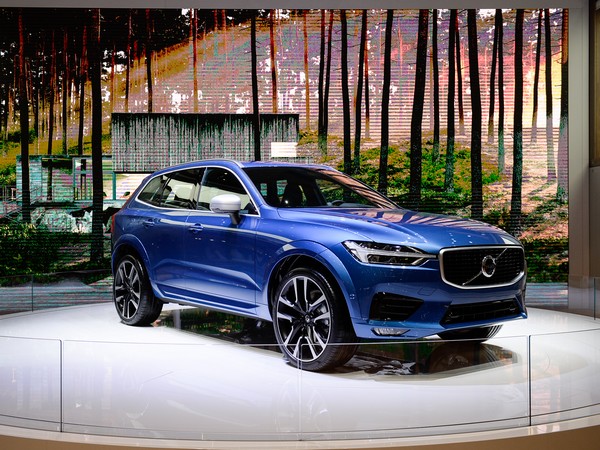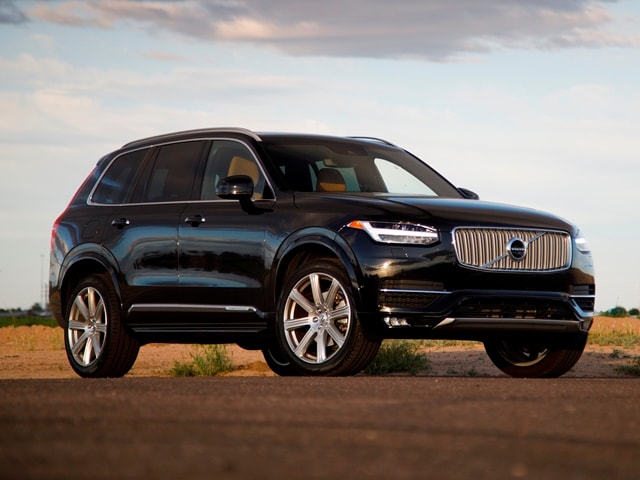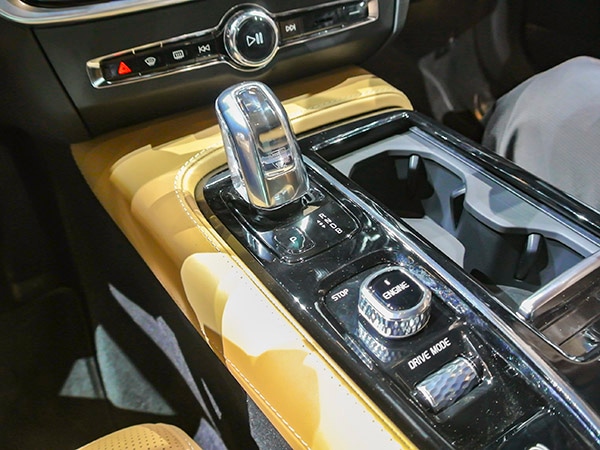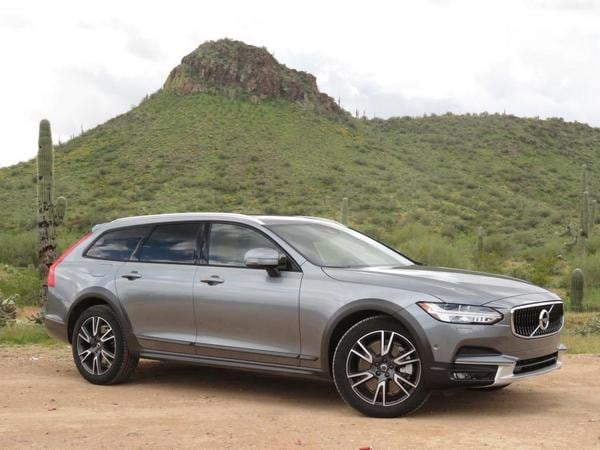
Looking to solidify its position in the luxury market, Volvo has placed a huge bet on crossover SUVs and sport wagons in an effort to distinguish itself in an increasingly competitive segment. While it plans to retain two sedans in its lineup, the flagship S90 and the smaller S60, the emphasis for the most part will be on its three SUVs and the recently introduced V90 Cross Country.
Lex Kerssemakers, Volvo’s senior vice president of the Americas, is particularly bullish on the upcoming XC60 replacement. “This is the volume Volvo, it’s in a big and fast-growing segment and we have a fantastic customer base with the existing XC60,” he said. “The XC60 will be our bread-and-butter car, the high volume car where we reach the largest audience. I think we have the perfect SUV portfolio, being a small player. The XC90 is the more luxury one, the XC60 the agile and dynamic one, and the XC40 coming at the end of the year will be the more fun, outgoing, extrovert one.”
Volvo’s sport wagon strategy
While crossover SUVs have established themselves as a credible and popular choice in the luxury market, Kerssemakers believes that this shift may in fact be setting the stage for a renaissance in station wagons, particularly more sporty versions popular in European markets.
“The sport wagon market in the United States is very small,” he admits. “Given the trends and demographics, in the end there is a whole generation coming up that has not been raised in sport wagons. They have been raised in MPVs.” Modern sport wagons, on the other hand, are not as boxy as traditional minivans and SUVs, which adds to their appeal, Kerssemakers explained. “It’s much more of a luxury car with extra luggage space,” he said. “I strongly believe the sports wagon will start to play a role again. It is a perfect alternative for the sedan. It’s the perfect alternative for those who do not want to sit high. But even if you want to sit high, but don’t want to drive a traditional SUV, we have our V90 Cross Country, which has a higher seating position, so you will have the overview. It is just a more dynamic car than an SUV and that’s why it will appeal to more and more people”
Of course, Kerssemakers confesses to a personal interest. “I’m not totally unbiased,” he said. “I’m European, I love sports wagons, I drive sports wagons and as a product planner in my previous job I was stating for 10 years that sports wagons will come back in the United States, but we haven’t seen it yet.”
Also: Class of 2018 – New Cars Ready to Roll
With the addition of the V90 Cross Country and the availability of V90 as well as new entrants like the Buick Regal Tour X, could give the wagon segment a needed boost. “Now with the portfolio we have and what the competition is bringing, I think it will open the eyes of the customers,” Kerssemakers predicts. “We are in a good position, we have a long heritage in sports wagons and we have one of the more beautiful ones. We are ready.”
While Volvo carries the off-road inspired V90 Cross Country in dealer inventories, the company is taking a different approach to the standard V90 station wagon. “I have no stock of the V90 in the U.S.,” he said, adding, “We sell it online. You can order it online behind your desk or at a retailer. The delivery is via the retailer [or through Volvo’s European delivery plan], it’s very simple. I don’t want to have stock and I know there is a very high penetration of lease, so people can plan their order. So everybody can order the car he or she really wants. It’s a perfect test case and we will see where it goes.”
Market pressure
Volvo has a goal of reaching a 1-percent share of the market by 2020, which could be as many as 150,000 to 170,000 units or nearly double its current sales. But there is a tremendous amount of competitive pressure ranging from the softness in the sedan segment to aggressive incentive and leasing programs from other luxury competitors.
Kerssemakers doesn’t see the current downturn as affecting Volvo all that much because of the brand’s scale. “We are too small, so I don’t keep too close an eye on it. I don’t think a plus or minus 2 million cars will affect us a lot in the short term.” However, the moves by other makes in response to shifts in the market does make Volvo work harder for sales.
“We put a lot of pressure on ourselves, you see the discounts are increasing, especially in the premium part of the market” he said. “It is not a healthy development. Given our size, I try to stay away a little bit from [the incentive wars], but it is difficult in the premium market, especially on the sedan side. The market is shrinking, and you see that cars are sold and that no one makes any money on it. I think it is unfortunate that we have to chase the numbers year-over-year, but in the end it doesn’t give us a sustainable business in the long run.”
Sedans to stay
Despite the trend away from traditional 4-door cars to crossovers, Kerssemakers still believes sedans play an important role in Volvo’s range. “I strongly believe one should have a sedan in the portfolio,” he said. “Sedans are still a big part of the market and that’s why we elected with the 2018 S90 to use the most competitive sedan in our range,” which is a long wheelbase variant only. “Size matters here, people appreciate size and all of it is in the rear seat.”
He adds that Volvo’s commitment to sedans is also reflected in the decision to build the smaller S60 here in the U.S. at a new factory in Charleston, S.C. “With two sedans, three SUVs and two wagons, we have coverage,” Kerssemakers said. “I am very comfortable with the portfolio for the next five years.”











